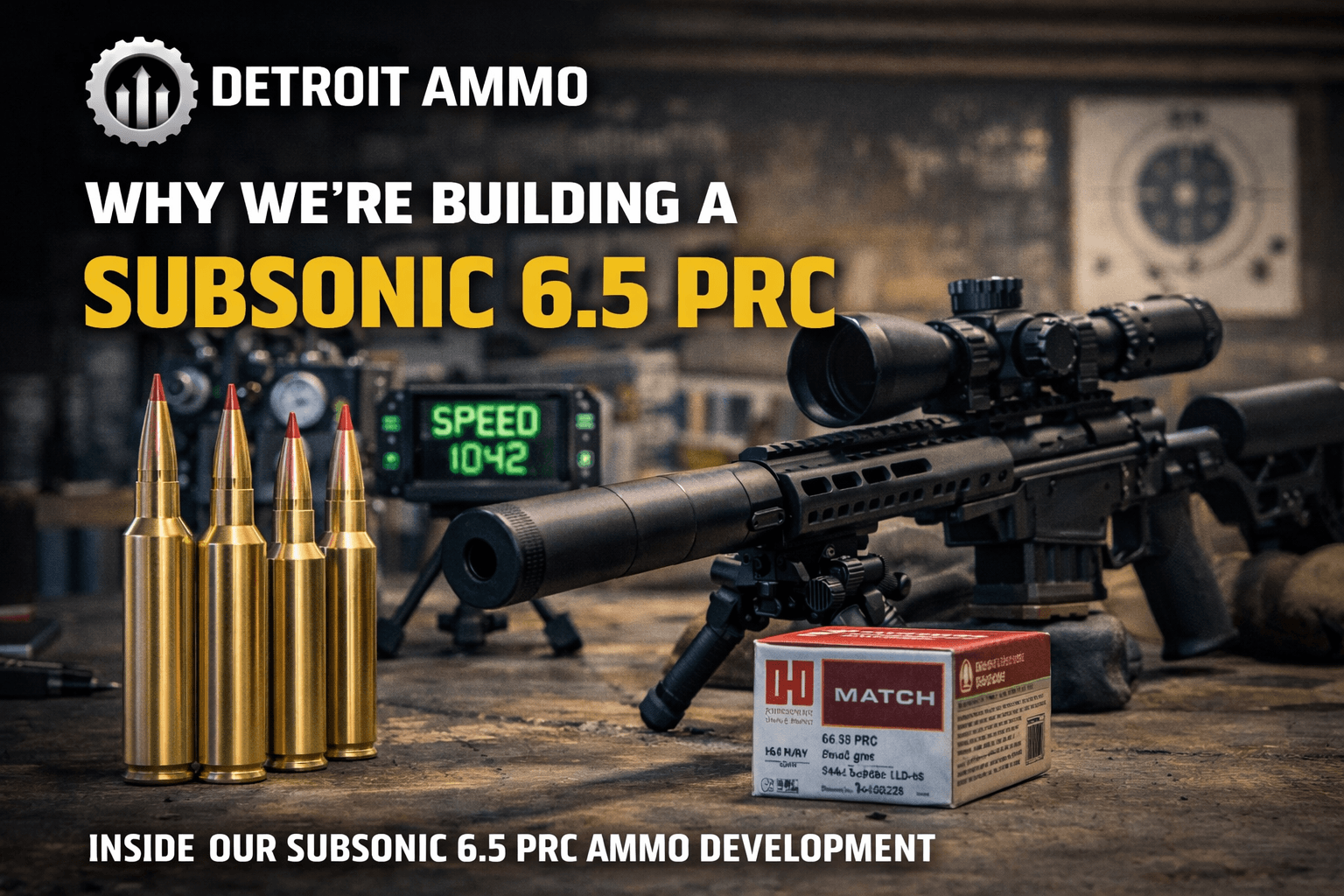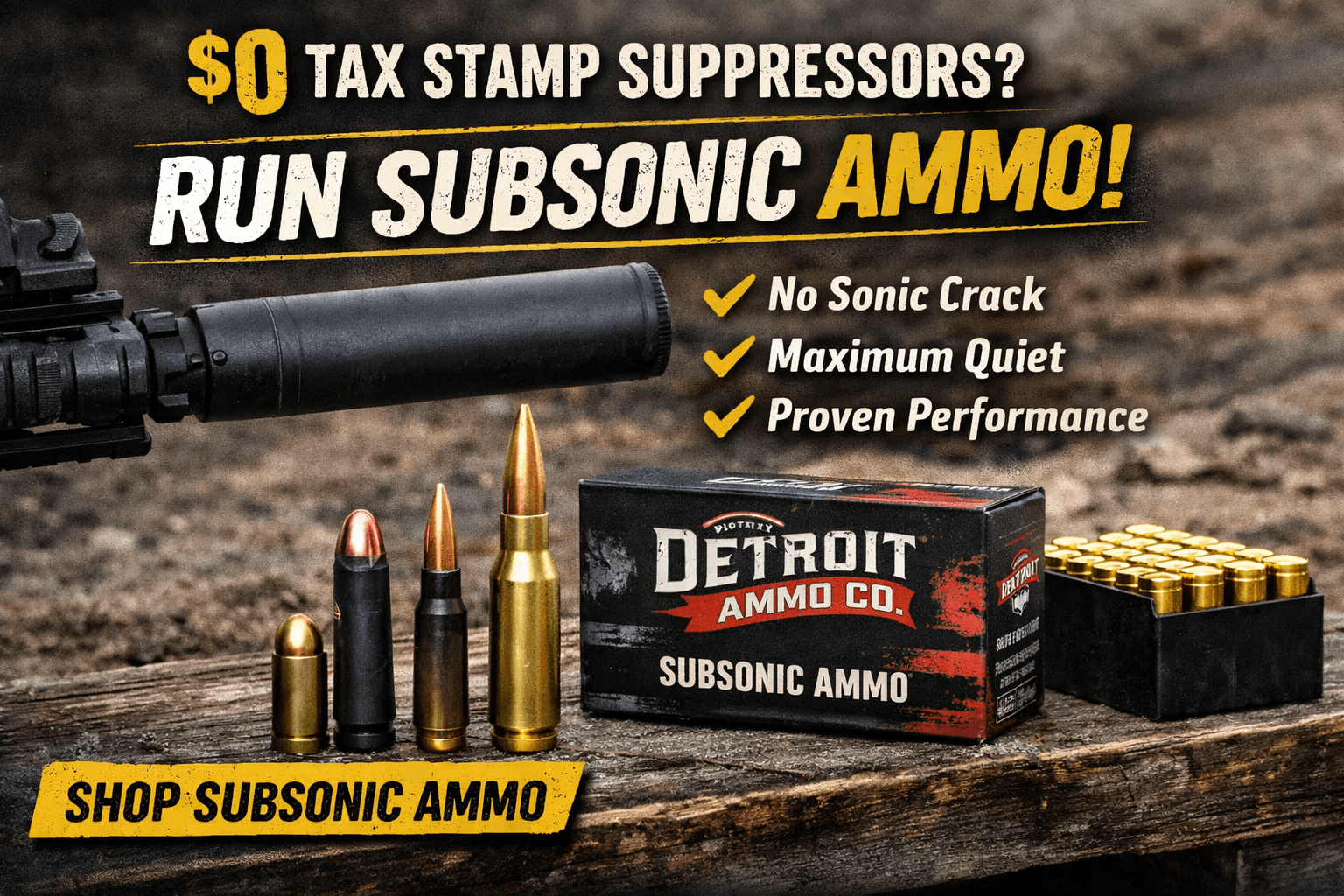Habits That Will Ruin Your Firearm
Posted May 2, 2022
Most new gun owners often don’t realize that guns require regular maintenance and protection. Many inexperienced gun owners think of them as sturdy apparatus that can take care of itself. Just like any other piece of machinery, a firearm is highly delicate. If not given the right amount of attention and care, a firearm is prone to wear and tear.
While sometimes there are natural factors and weather conditions affecting a firearm, our negligence mostly affects the quality of our guns. Sometimes, we tend to leave the gun in the case, while sometimes we use the wrong ammo, and sometimes we oil it to the point where it cannot even fire properly. If you are a new firearm owner, stay tuned. In the following paragraphs, we will look at some habits that will ruin your firearm.
Let’s break it down.
Ignoring Wear and Tear
As we have already discussed, guns are prone to wear and tear, and ignoring them can make things even worse, thus sending your investment down the drain. However, the manufacturers within the gun market are coming up with innovations that extend the timeline for wearing. However, none of those innovations effectively make a gun last a lifetime. The worst thing we can do is ignore the evident signs of wear and tear. The springs are the first component of a firearm to get affected by wear. It would be best to make sure the worn springs are removed and replaced with new ones as quickly as possible. Also, make sure to take care of the moving parts of your firearm. Cleaning them regularly and oiling them adequately is the only way out of a possibly messy situation.
Investing in Cheap Parts
As we have already discussed, sometimes a firearm’s parts need replacement. As much as you would like to replace those parts, you also cannot ignore the fact that these parts don’t come cheap, and you will have to factor them into your budget. The chances are that you have already spent a hefty amount of money on the gun and cannot afford to invest in expensive parts. This is where you are wrong. You must always invest in high-quality parts. Whether thea trigger, a bolt carrier, or a spring, make sure you do your research well before replacing it. These parts should be tested and must come from reliable manufacturers.
If you skimp on the quality of your parts and settle for chapter alternatives, the firearm may seize to perform and leave you stranded in the middle of nowhere when you need it the most.
Leaving the Gun in the Case
Your gun’s case is only for transportation purposes, and it shouldn’t be used as storage space. Some people mistake leaving the gun in the case for months and months at a stretch, which leads to a ruined firearm. Let’s discuss some of the reasons why that happens. A firearm comprises several metal parts that are prone to rust. If the rust is caught in one part, it can quickly spread to the rest of the gun. Rusting usually happens due to humidity. The best thing to do would be to store the gun in a cool and dry place where there is adequate ventilation and air flow, rust doesn’t spread. Leaving a gun in its case promotes rusting. If you are on a hunting trip, allow your gun to cool off outside the tent instead of bringing it in or placing it in a case while the gun is not in use.
Moreover, leaving the gun out in the open dries the moisture buildup, thus keeping the gun safe. Also, make sure to clean the gun and polish it regularly. If you must place the gun in its case, make sure it is cleaned and wiped with a dry cloth, and not a spot of moisture is left on it.
Excessive Oiling
Oiling is a necessary chore on a shooter’s priority list, but too much oiling of the firearm has its downsides too. It gets even worse when over-oiled guns are carried to colder areas. During the summer season, you can get away with excessive oiling, but in the winters, you can’t. What happens typically is that the oil and grease in your firearm tend to thicken when the temperature drops, which results in the formation of a thick and sticky film. The thick film of oil and grease keeps the pins from reaching the primers, making it challenging to shoot. Just like any other product, oil, too, has a shelf life. You must replace the oil on your gun as you would do with your automobile. Furthermore, it is better to have a professional take care of your gun’s lubrication. However, if you must do it on your own, make sure to use the hydrophobic oil sprays, as they tend to eat away the moisture, thus keeping rust at bay.
Reverse Cleaning the Barrel
Cleaning your firearm is instrumental in removing moisture, dirt, and grime. However, the wrong cleaning strokes can be expensive. Some people have a habit of reverse cleaning the barrel, which is one thing that can ruin the build of your firearm. If you look closely into the barrel, you will see spiral grooves inside. These grooves tend to run from the breach to the muzzle. When the cleaning rods are used in a reverse direction, they can easily ruin the crown. This usually happens when shooters are looking for ways to clean the gun in a fast-track manner. If you must clean quickly, you should use a bore snake instead.
It would be best to always move from the breach to the muzzle as far as cleaning directions are concerned. The bristle brush should first be dipped in a solvent and then used to scrub away the powder residue and lead if any. The solvent should then be removed using a dry piece of cloth. Then, a slightly oiled patch should be used to clean, thus protecting the rifling.
Plugging the Barrels
If you are a shooter, you must have seen some bulged barrels. The bulging in the barrel happens when there is too much pressure on the tubes. The increased pressure comes from a decrease in bore diameter. This is especially common with shotguns. Sometimes, in chasing prey, we often hit the gun against a tree, or drop it altogether, which minimizes the bore diameter and increases pressure in the tubes. Another significant issue is plugging mud and dirt into the barrel while we shoot. Such mistakes are sustained while we set decoys in the woods or trip and fall. A professional gunsmith can easily remove the dirt, but bulging is challenging to take care of. Shooting with a bulged barrel isn’t recommended at all. Therefore, have your barrels checked and repaired before firing around.
Most professionals stress the importance of keeping different gauge shells separated. However, smaller gauge shells are usually dropped in a big bore shotgun. The smaller shells tend to lodge in the barrel. As a result, an explosion occurs when the right gauge shell is added and fired. Luckily, such accidents aren’t too common, but they are still possible. When an explosion occurs, it affects the firearm and is equally dangerous for the shooter as well.
Incorrect Reloading
Many gun problems arise out of incorrect reloading or under-loading of the bullets. This is a common problem in handguns. A typical example is dropping to 4 grains of powder from 10 grains. The thing with powder is that it tends to burn slowly. While 10 grains of powder burn slowly, 4 grains are burnt in the wink of an eye, which isn’t right. However, rifle cartridges aren’t an issue because the big case capacity minimizes the sudden powder burn. However, in the case of pistols, it can get very messy. The quick burn results in a detonation that can blow up the weapon. It would be best to be very careful when reloading the bullets, especially fond of experimentation.
Allowing the Stock to Loosen Up
If you have worked with firearms, you must have seen a lot of cracks behind the lockplates. Do you know where those cracks come from? Those cracks are a product of loose stock bolts. When a discharge occurs, the receiver and the barrel tend to crash into the stock. If you notice some play in the receiver, make sure to have it fixed before something terrible happens.
Leaving the Gun against a Vertical Surface
Some of the most common issues with firearms are dings in the receivers, barrel dents, and chips out of stock. Do you know where they all come from? The reasons can vary, but these issues are common when a firearm falls to the ground. Sometimes, we rest a firearm against a vertical surface, resulting in a fall out of negligence. For example, it isn’t uncommon for people to rest their guns against their trucks during hunting. If they forget about the gun and choose to drive home, a fall can occur, and one that can be lethal for the firearm itself. After shooting, you should safely store the gun to prevent such mishaps. While a gunsmith can mend the dents and repair the stock, it is your job to be vigilant enough as a gun owner.
Using Garage Tool
Sure, a gun is a machine but does it mean you can work on it with everyday garage tools? Not. Sometimes, we see buggered-up screws on the firearms. Do you know where they come from? It happens when people use traditional screwdrivers to tighten the screws, which results in improper tightening. Luckily, you can avoid these issues by using precision ground screwdrivers. These screwdrivers fit the screw heads properly and prevent issues from taking place.
Improper Transportation
Let’s suppose you are going to another country with your firearm. It would be best to ensure the gun was stored correctly when being transported. Sometimes, people leave the muzzle rested on the floor in their vehicle. You must know that the slightest chip towards the muzzle can ruin your gun. It would be best if you covered the gun in a padded case that prevents your gun from colliding against hard surfaces.
Ignoring the Insides
Most new people pay too much attention to their firearms’ exteriors and ignore the interiors. The rust that appears on the outside of the barrel is much more dangerous if it gets inside. Interior rust is much more challenging to clean, and it compromises the build of your firearm. When the rust makes it to the chamber, the real problem begins. Make sure to lubricate your gun regularly and have it checked from time to time.
Speaking of interiors, some of us have a habit of being too aggressive with the solvents. The primary reason solvents are used to remove carbon, lead, and other residues. However, corrosion occurswhen these solvents enter the hard-to-reach areas. As a gun owner, it is in your best interest to be very careful with the number of fluids in your gun.
If you want your gun to last long, and serve you for as long as you want, make sure not to commit any of the mistakes mentioned above. The best thing you can do is have your gun checked and inspected by a professional gunsmith now and then. A majority of gun problems arise due to a lack of knowledge. That is where we come in. We are an e-commerce platform specializing in arms, ammunition, and gun supplies. Moreover, our blogs are well-researched and eloquently written for educating new and old gun owners. If you want to get in touch, please visit our website today.


